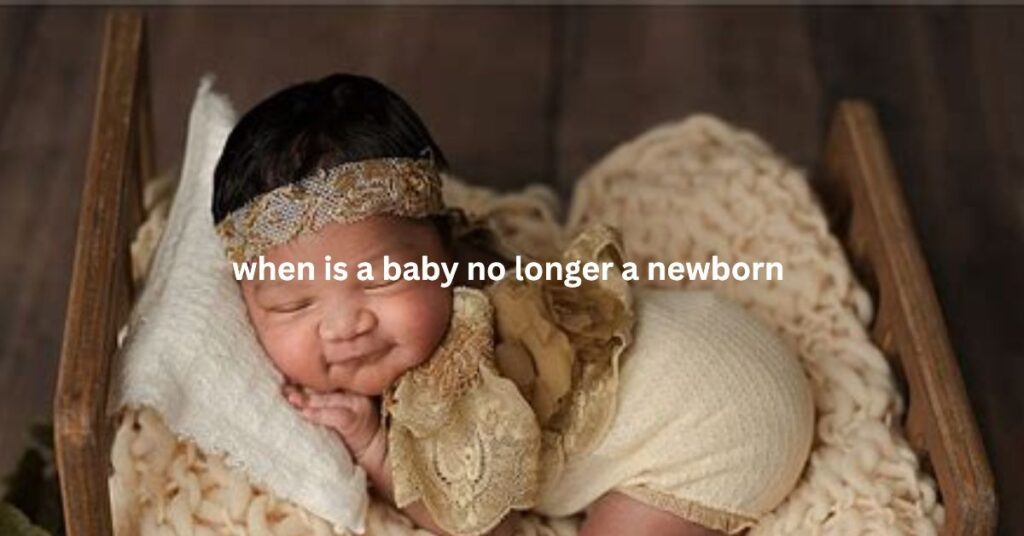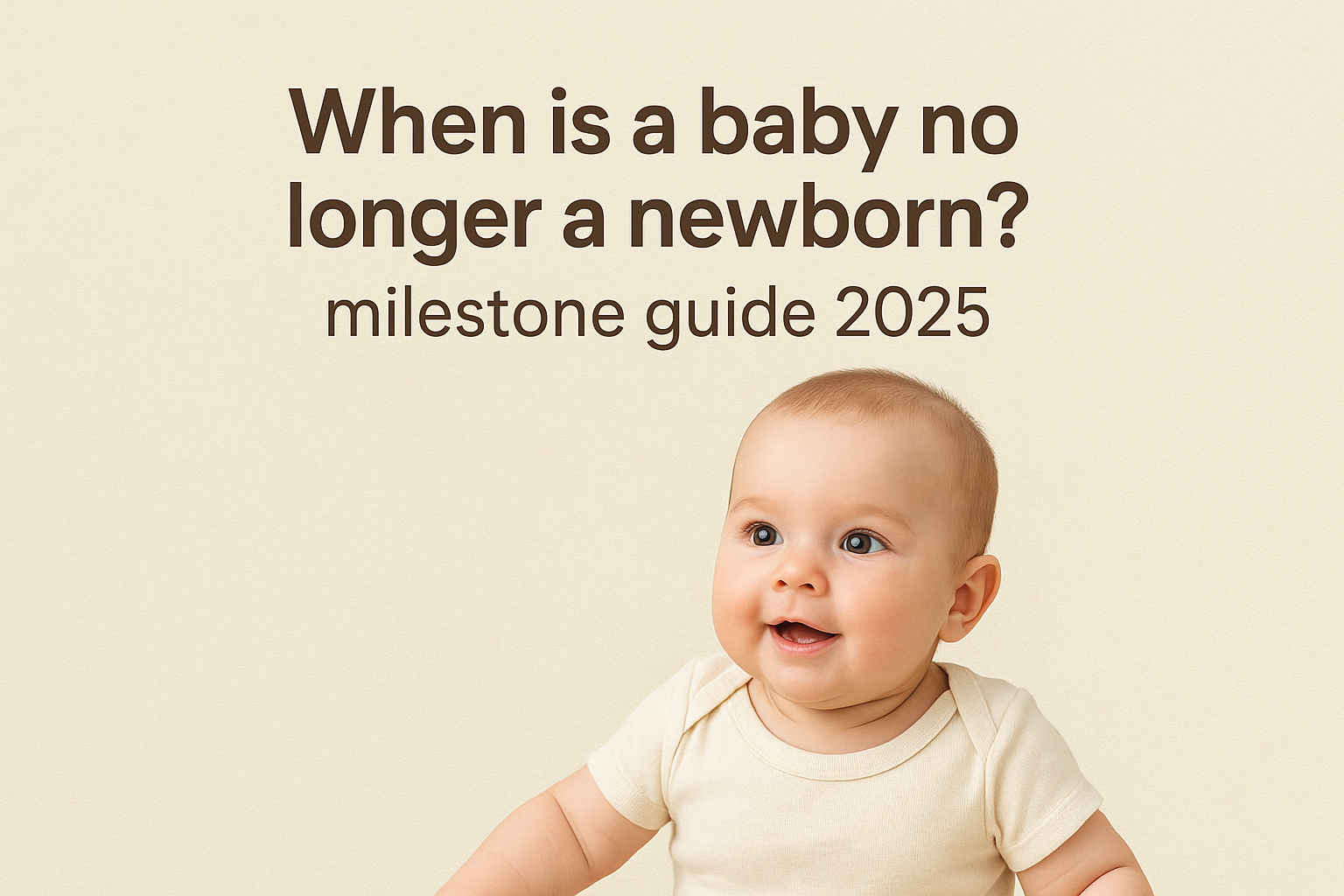It’s one of those days you are cradling the little one who seems to be made just for your arms, and in a blink of an eye — those newborn clothes are too small! Every parent has been thinking, “When is a baby no longer a newborn?” It’s an emotional milestone because the first few weeks are lovely, messy, and sadly, they go away too fast.
This guide will explain the duration of the newborn stage, what signs indicate that your baby is growing up, and how you can get the most out of this wonderful phase
What Is The Newborn Stage
The infant stage is the time immediately after birth and is generally referred to as the first 6–8 weeks of life. In this period your baby is still getting used to the world — eating, sleeping, and recognizing your voice.
Newborn infants are characterized by:
- Feeding very often (every 2–3 hours)
- Having sleepy eyes and making soft cries
- Performing reflexive movements (such as grasping your finger)
- Needing to be held all the time
The brief period, which is the first stage, is crucial to the development of your baby’s physical and emotional growth.
How Long Is the Newborn Stage?
It is generally agreed by pediatricians that a newborn is a baby for only about 2 months (8 weeks). After that, the tiny human becomes an infant — still largely dependent, but also visibly more curious and more communicative.
However, keep in mind that babies differ greatly from each other. Some will achieve developmental milestones quicker and others slower, but both will be equally fine. The main thing is that the children are developing in a healthy and positive way.
1. Baby No Longer a Newborn

Are you confused whether your baby is still a newborn or not? Check out these changes:
- They start smiling socially
- Sleep becomes more predictable
- They hold their head up a little
- Diaper changes get slightly easier (phew!)
- They respond to your voice and face
If these points are familiar to you, then congrats! You are in the next phase of babyhood.
4. Why the Newborn Stage is Important
Newborn stage may seem wearing, but it is very unique. This is the time when:
- Parent and baby emotionally trust each other
- Baby gets familiar with the parents’ smell, voice, and touch
- First bonding helps the child develop a feeling of safety
- related more artical https://wellness360plus.info/newborn-baby-girl-1/
Such a small period of time becomes the basis of a lifetime of memories — and the emotional bonds made during that time will last forever.
Tips to Enjoy the Newborn Period

Honestly, it isn’t always a walk in the park. However, these tiny habits may help you to live it more:
- Make a heap of pictures (future you will be very grateful)
- Keep the routines minimal — naps, feeds, cuddles
- Don’t fret about perfection — babies sense your calm
- If help is given to you, don’t hesitate to take it (really!)
- Rest when your infant is asleep — a truism but still
Never forget that this moment will not come back. Hold tight to every sleepy snuggle.
FAQs About When a Baby Is
No Longer a Newborn
1. When is a baby no longer a newborn?
In general, it is around the 8th week of life. After that, a baby is considered an infant, hence, he/she becomes more lively and responsive.
2. How long is the newborn stage?
The newborn time is from birth up to about 6–8 weeks, although each baby develops differently.
3. What happens after the newborn stage?
More alertness will be there, along with longer sleep periods and also the very first charming smiles!
4. Why is the newborn stage so short?
Infants develop very fast in their first two months — both in terms of their bodies and their minds — hence, they are getting ready for new stages of their lives.
Conclusion
The first few weeks of life for a baby is this very brief period that could pass by without you even realizing, but this time is filled with love, learning, and late-night lullabies. Generally, the majority of babies become infants after 6-8 weeks and thus the newborn stage fades away. So, rather than counting the days, you should focus on living them. Since those times? They are gone forever.

